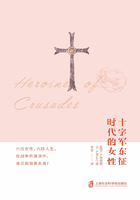The people hanging heavily from the straps and those few lucky devils who can sit-they all crane their necks high out of their used-up torsos, but it's no use, they spot no one. There's no one they can gang up on for maltreating their legs with a hard object. "Someone stepped on my toes," and a deluge of foul language gushes from a mouth. Who did it? The First Viennese Trolley Court, infamous throughout the world, is in session in order to issue a warning and pass a sentence. In every war movie, there's always at least one person who volunteers, even if it's for a suicide mission. But this cowardly dog is hiding behind our patient backs. A whole batch of ratty workers, on the verge of retirement, with tool bags on their shoulders, shove and kick their way out of the trolley. They're deliberately walking to the next stop! When a ram disturbs the peace and quiet among all the sheep in the car, then you desperately need fresh air, and you find it outside. If you're going to chew out your wife at home, you have to have oxygen; otherwise you may not be up to chewing her out. Something with a vague color and shape starts swaying, slips along; someone screams as if stabbed. A thick, steamy mist of Viennese venom rolls across this public meadow. Someone even calls for an executioner because his evening has been ruined prematurely. My, but they're furious. Their evening relaxation, which should have begun twenty minutes ago, has not set in. Or else it has been abruptly cut off, like the colorfully printed package of the victim's life (with instructions), which he cannot put back on the shelf. (He cannot simply reach inconspicuously for a new, intact package; otherwise the salesgirl would have him arrested for shoplifting. Follow me quietly! But the door that leads, or seems to lead, into the manager's office is a phony door, and there are no announcements of weekly specials on the windows of the brand-new supermarket. There is nothing, absolutely nothing, only darkness. And the customer plunges into a bottomless pit.) Someone says in the officialese that is customary in public vehicles here: You are to vacate this trolley car without futher delay. A tuft of chamois hair grows rankly from a cranium; the man is disguised as a hunter.
SHE, however, bends in time, planning to try a new, nasty trick. First, SHE has to put down the bulky refuse of her instruments. They form a fence around her. She pretends to tie her shoelaces in order to prepare a noose for the next passenger. Almost casually, she viciously pinches the female calf to her left or her right (these women all look alike). A bruise awaits the victim. The disfigured passenger, a widow, shoots up, a bright, radiant, illuminated fountain at night-the fountain can at last be the focus of attention. The widow outlines her family connections tersely and precisely, and she ominously predicts that these connections (especially her dead husband) will wreak horrifying vengeance on her tormentor. She demands a policeman; but the police will not come, they cannot worry about everything.
The harmless expression of a musician is slipped over her face. SHE acts as if she were yielding to those mysterious powers of musical romanticism, powers moving to ever higher emotional peaks-she acts as if she could not be thinking about anything else in the world. The populace then speaks as if with one voice: It couldn't have been the girl with the machine gun. The populace is wrong again, as it is so often.
Occasionally, someone thinks harder and then eventually points to the true culprit: "You're the one!" SHE is asked what in the name of all that's holy she has to say for herself. SHE does not speak. The lead plug that her trainers have surgically inserted behind her soft palate prevents her from speaking, from unwittingly accusing herself. She does not defend herself. A few people pounce on a few others for accusing a deaf mute. But the voice of reason maintains that someone who plays the violin couldn't possibly be deaf. Perhaps she is only mute or perhaps she is taking the violin to someone else. Failing to reach an agreement, they give up their plan. Their minds are haunted by the thought of a glass of wine, which wipes out several pounds of other thoughts. The actual wine will demolish any remaining thoughts. This is the land of wines. This is the city of music. The girl peers into distant worlds of profound emotions, and her accuser can at best drown his sorrow in a glass of wine. So he falls silent under her gaze.
Shoving is beneath her dignity: The mob shoves, but not the violinist and violist. For the sake of these little trolley joys, she even puts up with coming home late-to find her mother standing there with a stopwatch and a warning. SHE endures such agonies, even though she has played all afternoon, focusing her mind, wielding her bow, and laughing at pupils who played worse than she. She wants to teach people how to be afraid, how to shudder. Such feelings run rampant through the playbills of Philharmonic Concerts.
A member of the Philharmonic audience reads the program notes and is prompted to tell someone else how profoundly his innermost being throbs with the pain of this music. He's read all about it. Beethoven's pain, Mozart's pain, Schumann's pain, Bruckner's pain, Wagner's pain. These pains are now his sole property, and he himself is the owner of the P?schl Shoe Factory or Kotzler Construction Material Wholesalers. Beethoven manipulates the levers of fear, and these owners make their workers jump fearfully. There's also a Ph.D. here who's been intimate with pain for a long time. For the past ten years, she has been trying to fathom the ultimate secret of Mozart's Requiem. So far, she's gotten nowhere, for his opus is unfathomable. It is beyond our comprehension: The woman calls it the most brilliant work ever commissioned in the history of music. That is indisputable for her and for few other people. The Ph.D. is one of the chosen few who know that some things can never be fathomed, no matter how hard you try. What good are explanations? There is no possibility of explaining how such a work could ever have come into being. (The same holds true for certain poems, which should not be analyzed either.) A mysterious stranger in a coachman's black coat turned up and made the down payment for the Requiem. The Ph.D., and the others who have seen the Mozart movie, know that the mysterious stranger was-Death himself! By thinking this thought, she bites a hole in the flesh of one of the great geniuses and pushes her way inside. In rare cases, one grows along with the genius.
Ugly masses of people throng about HER uninterruptedly. People are always pushing their way into HER field of perception. The mob not only grabs hold of art without being entitled to do so, but it also enters the artist. It takes up residence inside the artist and smashes a few holes in the wall, windows to the outer world: The mob wants to see and be seen. With sweaty fingers, that cloddish mob is tapping out something that rightfully belongs to HER alone. Unasked, unbidden, they sing along with the cantilenas. Moistening their forefingers, they pursue a theme, looking for the secondary theme, but failing to find it. And so, nodding their heads, they are content to rediscover and repeat the main theme. Recognizing it, they wag their tails. For most of them, the principal charm of art is to recognize something that they think they recognize. A wealth of sensations overwhelms a butcher. He can't help it, even though he is used to his bloody profession. He is paralyzed with astonishment. He sows not, he reaps not, he doesn't hear so well. But if he goes to a public concert, people can see him. Next to him, his better half; she wanted to come along.
SHE kicks the right heel of an old woman. SHE is able to assign every phrase its preordained location. SHE alone can take every sound and insert it in the right place, in its proper niche. SHE packs the ignorance of these bleating lambs into her own scorn, using it to punish them. Her body is one big refrigerator, where Art is well stored.
HER instinct for cleanliness is astonishingly sensitive. Dirty bodies form a resinous forest all around her. Not only the dirt of bodies, but the grossest kinds of filth struggling out of armpits and groins, the subtle urine stench of the old woman, the nicotine gushing from the network of the old man's veins and pores, those innumerable piles of lowest-quality food stewing in the stomachs. Not only the faint wax stench of scurf and scab, not only the stink of shit microtomes under the fingernails-a very, very faint odor, but the expert can sniff them so easily, those residues left from burning colorless food, gray, leathery delights (if they can be called delights). They torment HER sense of smell, HER tastebuds. What upsets HER most of all is the way these people dwell in one another, the way they shamelessly take possession of one another. Each pushes his way into other minds, into their innermost attention.
They have to be punished. By HER. And yet she can never get rid of them. She shakes them, shreds them, like a dog mauling its prey. And yet, unbidden, they rummage around in her, they observe HER innermost thoughts, and then they dare to say that they can't do anything with these thoughts, that they don't even like them. Why, they actually go so far as to say they don't like Webern or Sch?nberg.
Mother, without prior notice, unscrews the top of HER head, sticks her hand inside, self-assured, and then grubs and rummages about. Mother messes everything up and puts nothing back where it belongs. Making a quick choice, she plucks out a few things, scrutinizes them closely, and tosses them away. Then she rearranges a few others and scrubs them thoroughly with a brush, a sponge, and a dustrag. Next, she vigorously dries them off and screws them in again. The way you twist a knife into a meatgrinder.
An old woman has just gotten into the trolley, but she doesn't notify the conductor. She thinks she can keep her presence a secret. Actually, she got out of everything long ago, and she knows she did. Paying is too much trouble. She's already got her ticket to eternity in her handbag. The ticket must be valid in a streetcar, too.
Now some woman asks HER for directions, but SHE doesn't answer. SHE doesn't reply although SHE does know the way. The woman won't give up, she pokes her way through the entire car, pushing people aside so she can peer under seats and find her stop. She is a grim wanderer along forest paths, and she has a habit of using her skinny cane to tickle ant hills and arouse the ants from their contemplative lives. She makes the disturbed creatures spray acid. She is one of those people who leave no stone unturned, lest they find a snake underneath. Every clearing, no matter how small, is conscientiously combed for mushrooms or berries. That's the kind of people they are. They squeeze every last drop from every single artwork and explain it vociferously to everyone else. In parks, they use their handkerchiefs to dust a bench before sitting down. In restaurants, they polish the silverware with a napkin. They go through a relative's suit with a fine-tooth comb, hunting for hair, letters, grease spots.
And now this lady vociferously complains that no one can give her the information she needs. She says that no one wants to give it to her. This lady represents the ignorant majority, which does however possess one thing in abundance: It is raring for a fight. She'll challenge anyone if she has to.
She gets off at the very street the woman asked about, and as she steps out, she sneers at her.
The buffalo understands, and she is so angry that her pistons grind to a halt. A short time from now, she will describe these moments of her life to a friend while devouring sauerbraten with beans. She will prolong her life by the length of her story, even though time will wear on inexorably as she tells it, thus depriving her of the chance to have a new experience.
SHE peers back several times at the completely disoriented woman before setting off on the familiar road to her familiar home. SHE smirks at the woman, forgetting that a few minutes from now, SHE will feel the hot flame of her mother's blowtorch and SHE will be burned to a pile of ashes because SHE is late in getting home. No art can possibly comfort HER then, even though art is credited with many things, especially an ability to offer solace. Sometimes, of course, art creates the suffering in the first place.
Erika, the meadow flower. That's how she got her name: erica. Her pregnant mother had visions of something timid and tender. Then, upon seeing the lump of clay that shot out of her body, she promptly began to mold it relentlessly in order to keep it pure and fine. Remove a bit here, a bit there. Every child instinctively heads toward dirt and filth unless you pull it back. Mother chose a career for Erika when her daughter was still young. It had to be an artistic profession, so she could squeeze money out of the arduously achieved perfection, while average types would stand around the artist, admiring her, applauding her. Now, Erika has at last been patted into perfection. Such a girl was not meant to do crude things, heavy manual labor, housework. She was destined, congenitally, for the subtleties of classical dance, song, music. A world-famous pianist-that is Mother's ideal. And to make sure the child finds her way through every entanglement, Mother sets up guideposts along the way, smacking Erika if she refuses to practice. Mother warns Erika about the envious horde that always tries to destroy other people's achievements-a horde made up almost entirely of men. Don't get distracted! Erika is never allowed to rest at any level she reaches, never allowed to catch her breath and lean on her icepick. For she has to keep climbing. To the next level. Forest animals come too close for comfort; they want to turn Erika into an animal. Competitors try to lure Erika to a cliff, pretending they'd like to show her the view. But how easily one can plunge down! Mother graphically describes the chasm, so her child will watch out. The peak offers international fame, which is never reached by most climbers. A cold wind blows up there, the artist is lonesome and admits his solitude. So long as Mother lives and continues planning Erika's future, there is only one possibility for the child: the top of the world.
Mama pushes from below, for she has both feet planted solidly on the ground. And soon Erika no longer stands on the inherited motherland, she is on someone else's back, someone she has ousted with her back-stabbing. What shaky ground! Erika stands on tiptoe, on her mother's shoulders. Her trained fingers clutch the peak, which, alas, soon turns out to be merely a crag; it only looks like the peak. Straining the muscles of her upper arm, Erika hoists and heaves herself up. Now, her nose is already over the edge, but all she sees is a new rock, steeper than the first. However, an ice factory of fame has a branch here, which keeps huge blocks in storage, thereby holding down its overhead. Erika, an adolescent, licks at one of the blocks and believes that a recital she gives is already the Chopin Competition. She believes that the peak is only a few inches away!
Mother taunts Erika for being too modest. You're always the last! Noble restraint is useless. One should always be at least in third place; anything less is garbage. That's what Mother says. She knows best; she wants only the best for her child. She won't let her stay out in the street: After all, she shouldn't get involved in athletic competitions and neglect practicing.
Erika doesn't like being conspicuous. She elegantly holds back (the offended mother-animal laments) and waits for others to achieve something for her. Mother, bitterly complaining that she has to do everything for the child herself, jubilantly plunges into the thick of the fray. Erika nobly puts herself last, and her efforts don't even bring her a couple of pennies for stockings or panties.
Mother nags away at friends and relatives (of whom there are very few, for she broke with them long ago; she wanted to keep Erika safe from their influence). Mother tells all these people that Erika is a genius. She says she keeps realizing it more and more clearly. Erika is truly a keyboard genius, but she has not been properly discovered as yet. Otherwise, she would have long since soared over the mountains, like a comet. Compared with that, the birth of Jesus was chickenshit.
The neighbors agree. They enjoy listening when the girl practices. It's like the radio, only you don't need to have a set. All you have to do is open the windows and perhaps the doors, the music comes in, spreading like poison gas into every nook and cranny. People indignant about the noise stop Erika whenever they run into her, and they ask her for peace and quiet. Mother tells Erika how enthusiastic the neighbors are about her outstanding mastery of the keyboard. Erika is carried along like a dribble of spit on a thin stream of maternal enthusiasm. Later on, she is surprised when a neighbor complains. Her mother never said anything about complaints!
Eventually, Erika outdoes her mother when it comes to sniffing at people. Who cares about those laymen, Mama. Their powers of judgment are crude, their sensibilities are unrefined; only the professionals count. Mother retorts: Do not make fun of praises from simple people. They listen to music with their hearts and enjoy it more than those who are spoiled, jaded, blasé. Mother knows nothing about music, but she forces her child into its yoke. A fair if vindictive rivalry develops between mother and daughter, for the child soon realizes that she has outgrown her mother with regard to music. The daughter is the mother's idol, and Mother demands only a tiny tribute: Erika's life. Mother wants to utilize the child's life herself.
Erika is not allowed to associate with ordinary people, but she is permitted to listen to their praises. Unfortunately, the experts do not praise Erika. A dilettantish, unmusical Fate has exalted other people. But it has passed Erika by, averting its face. After all, Fate wants to remain disinterested and not be taken in by an attractive mask. Erika is not pretty. Had she wanted to be pretty, her mother would have promptly ordered her to forget it. Erika stretches her arms out to Fate. But it's no use; Fate will not turn her into a pianist. Erika is hurled to the ground as sawdust. Erika does not understand what is happening to her, for she has been as good as the masters for a long time now.
Then, one day, at an important concert at the Academy of Music, Erika fails totally. She fails in front of the friends and relatives of her competitors and in front of her mother, who sits there alone. Mother spent her last penny on the dress Erika wears for this recital. Afterward, Mother slaps Erika's face, for even musical laymen could read Erika's failure in her face if not her hands. Furthermore, Erika did not choose a piece for the broadly rolling masses. She decided on a Messiaen, against her mother's urgent warning. This is no way for the child to smuggle herself into the hearts of the masses, whom mother and child have always despised: the mother because she has always been merely a small, plain part of the masses; and the child because she would never want to become a small, plain part of the masses.
Erika reels from the podium, shamefaced. She is received shamefully by her sole audience: Mother. Erika's teacher, who used to be a famous pianist, vehemently scolds her for her lack of concentration. A wonderful opportunity has been wasted, and it knocks but once. Someday soon, Erika will be envied by no one, idolized by no one.
What else can she do but become a teacher? A difficult step for a master pianist, who is suddenly confronted with stammering freshmen and soulless seniors. Conservatories and academies, as well as private teachers, patiently accept a lot of students who really belong on a garbage dump or, at best, a soccer field. Many young people are still driven to art, as in olden times. Most of them are driven by their parents, who know nothing about art-only that it exists. And they're so delighted that it exists! Of course, art turns many people away, for there has to be a limit. The limits between the gifted and the ungifted. Erika, as a teacher, is delighted to draw that limit. Selecting and rejecting make up for a lot. After all, she was once treated like a goat and separated from the sheep. Erika's students are a coarsely diverse mixture, and none of them has ever been really tested or tasted. One seldom finds a red rose among them. Occasionally, during the first year, Erika manages to wrest a Clementi sonata from one or two students, while others still grunt and root about in Czerny's elementary études. These students are then discarded after the intermediary examination, because they can't find the wheat and they can't find the chaff, even though their parents are firmly convinced that their children will soon feast on nectar and ambrosia.
Erika's mixed joys are the good advanced students, who make an effort. She can wrest all sorts of things from them: Schubert sonatas, Schumann's Kreisleriana, Beethoven sonatas, those high points in the life of a piano student. The work tool, a B?sendorfer, excretes an intricate blend. And next to it stands the teacher's B?sendorfer, which only Erika can play, unless two students are practicing a piece for two pianos.
After three years, the piano student has to enter the next level; to do so, he must pass an exam. Most of the work for this exam is assigned to Erika; she has to take the idling student engine and step on the gas, slam down hard in order to rev it up. Sometimes the engine doesn't really catch, it would rather be doing something else, something that has little to do with music-for instance, pouring melodious words into a girl's ear. Erika doesn't care for such behavior; she tries to stop it whenever she can. Often, before an exam, Erika sermonizes: Fluffing a note, she says, isn't as bad as rendering a piece in the wrong spirit, a spirit that does not do justice to it. She is preaching to deaf ears, which have been closed by fear. For many of her students, music means climbing from the depths of the working class to the heights of artistic cleanliness. Later on, they too will become piano teachers. They are afraid that when they play at the examination, their sweaty, fear-filled fingers, driven by a swifter pulse beat, will slip to the wrong keys. Erika can talk a blue streak about interpretation, but the only thing the students wish to do is play the piece correctly to the end.
Erika likes thinking about Walter Klemmer, a nice-looking blond boy, who lately has been the first to show up in the morning and the last to leave in the evening. A busy beaver, Erika must admit. He is a student at the Engineering Academy, where he is learning all about electricity and its beneficial features. Recently he has been listening to all the music students, from the first hesitant picking and pecking to the final crack of Chopin's Fantasy in F Minor, Op. 49. He seems to have a lot of time on his hands, which is rather unlikely for a student in the final phase of his studies. One day, Erika asks him whether he wouldn't rather practice Sch?nberg, instead of lounging around so unproductively. Doesn't he have any studying to do? No lectures, no drills, nothing? He says he's on his semester break, which hadn't occurred to Erika, although she teaches so many students. Vacation at the music academy doesn't coincide with vacation at the university. Strictly speaking, there are no holidays for art; art pursues you everywhere, and that's just fine with the artist.
Erika is surprised: How come you always show up here so early, Herr Klemmer? If a student is working on Sch?nberg's 33b, as you are, he can't possibly be interested in minor frivolities. So why do you listen to the others? The hardworking student lies. He says you can profit from anything and everything, no matter how little it may be. You can learn a lesson from just about anything, says this con man, who has nothing better to do. He claims he can get something from even the least of his brothers, so long as he remains curious and thirsty for knowledge. Except that you have to overcome those minor things in order to get further. A student can't stay with the losers, otherwise his superiors will interfere.
Besides, the young man likes listening to his teacher perform, even if it's just singsong, tralala, or the B major scale. Don't start flattering your old teacher, Herr Klemmer. But he replies that she's not old, and he's not "flattering" her. I really mean every word I say, it comes from the bottom of my heart! Sometimes this nice-looking boy asks for a favor, extra homework, he'd like to practice something extra, because he's over-zealous. He gazes expectantly at his teacher, hoping for a hint, lying in wait for a pointer. His teacher, on her high horse, cuts the young man down to size when she sneers: You still don't know the Sch?nberg all that well. The student enjoys being in the hands of such a teacher, even when she looks down at him while holding the reins tightly.
That dashing young man seems to be in love with you, Mother says venomously, in a bad mood, when she happens to call for Erika at the conservatory. She wants to take a walk with Erika, two women, arm in arm, intricately interwoven. The weather plays its part as the women walk. There are a lot of things to see in the shop windows-elegant shoes, pocket-books, hats, jewelry-but Erika should not see them under any circumstances. That is why Mother came to pick her up. Mother takes Erika on a circuitous route, telling her it's because of the beautiful weather. The parks are blossoming, the roses and tulips are blooming, and the flowers certainly don't buy their dresses. Mother talks to Erika about natural beauty, which doesn't require any artificial embellishment. Natural beauty is beautiful on its own, just like you, Erika. Why all the baubles?
The outskirts of the city beckon with warm calls of nature, with fresh hay in the stables. Mother heaves a sigh of relief, she pushes her daughter past the boutiques. Mother is delighted that this stroll has once again cost her no more than some shoe leather. Better to wear worn shoes than to polish the boots of some shop owner.
The population in this part of Vienna is rather long in the tooth. You see lots of old women. Luckily this one old woman, Mother Kohut, has managed to obtain a younger hanger-on, of whom she can be proud, and who will take care of her until death do them part. Only death can separate them, and death is marked as the destination on Erika's suitcase. Sometimes, a series of murders takes place in this area, a couple of old crones die in their lairs, which are chock full of waste paper. God only knows where their bankbooks are; but the cowardly murderer knows it too, he looked under the mattress. The jewelry, what little there was, is also gone. And the only son, a silverware salesman, gets nothing. Vienna's slums are a popular area for murder. It's never hard to figure out where one of those old women lives. Just about every building here has at least one-she's the laughingstock of the other tenants. And when a man knocks and says he's the meter reader, but presents no ID card, she lets him in anyway. They've been warned often enough, but still they open their hearts and doors, for they are lonesome. That's what old Frau Kohut tells Fr?ulein Kohut, trying to discourage her from ever leaving her mother alone.
The other inhabitants here are petty officials and placid clerks. There are few children. The chestnut trees are blooming and the trees in the Prater are blossoming. The grapes are turning green in the Vienna Woods. Unfortunately, the Kohut ladies have to abandon all hope of ever going there for a good look, since they don't own a car.















